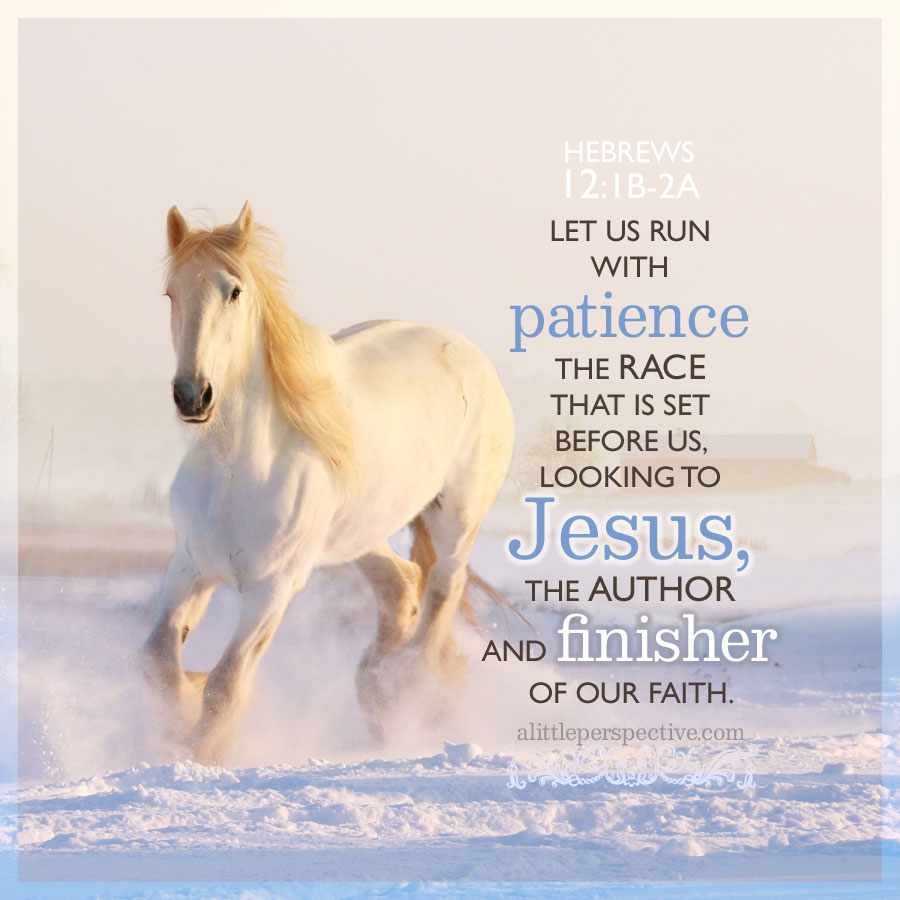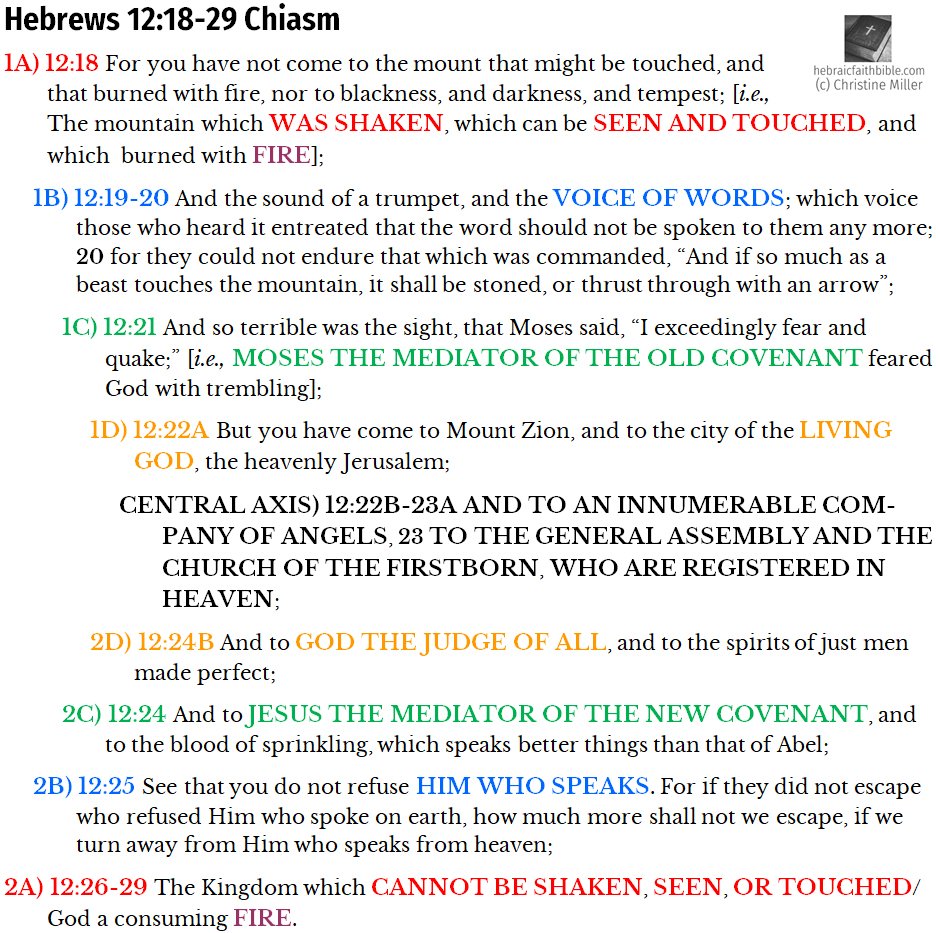Read Hebrews 12 here (text coming …) or at Bible Gateway.
Heb 12:18-29 Chiastic Structure:
In the ancient world, people did not have citizenship in countries, as they do now. They were citizens of cities. Paul, for example, was a Roman citizen, even though he was never there till the end of his life. Because Rome was the premier city of the empire, Paul’s citizenship gave him special status with the Gentiles, no matter what city of the empire he was in at the time.
Abraham was a citizen of Ur of the Sumerians (Gen 11:27-32). We might today think it not such a big deal that Abraham left his city and became a sojourner in a land he knew not. We move from city to city or travel from city to city without giving it a second thought. But in those days, your city determined in a large part who you were. To leave your city was to leave comfort, order, and civilization. Because Abraham left the city of his fathers, and obeyed God, believing Him by faith, he has become the father of all those who by faith come to God.
We learn from the book of Hebrews just what Abraham’s change of citizenship meant:
By faith Abraham, when he was called, obeyed by going out to a place which he was to receive for an inheritance; and he went out, not knowing where he was going. By faith he lived as an alien in the land of promise, as in a foreign land, dwelling in tents with Isaac and Jacob, fellow heirs of the same promise; for he was looking for the city which has foundations, whose architect and builder is God. Heb 11:8-10
Abraham dwelt in tents here on this earth, having left the city of men, because he was looking for, not just “a” city, but “the” city, whose builder was God. Abraham changed his citizenship from the city of Ur, a city built by men, to the city of God.
All these died in faith, without receiving the promises, but having seen them and having welcomed them from a distance, and having confessed that they were strangers and exiles on the earth. For those who say such things make it clear that they are seeking a country of their own. And indeed if they had been thinking of that country from which they went out, they would have had opportunity to return. But as it is, they desire a better country, that is, a heavenly one. Therefore God is not ashamed to be called their God; for He has prepared a city for them. Heb 11:13-16
God has prepared a heavenly city for those who have renounced earthly citizenship, who live as strangers and exiles on the earth as did their forefather Abraham.
But you have come to Mount Zion and to the city of the living God, the heavenly Jerusalem, and to myriads of angels, to the general assembly and church of the firstborn who are enrolled in heaven, and to God, the Judge of all, and to the spirits of the righteous made perfect, and to Jesus, the mediator of a new covenant, and to the sprinkled blood, which speaks better than the blood of Abel. Heb 12:22-24
The city of God is Mount Zion. The writer of Hebrews is careful to identify Mount Zion with the heavenly Jerusalem, not the earthly Jerusalem. Why? Because the earthly Jerusalem, Jesus laments, kills the prophets and stones those who are sent to her (Mat 23:37). The earthly Jerusalem is unwilling to be gathered under the Lord’s wings.
For here we do not have a lasting city, but we are seeking the city which is to come. Heb 13:14
Furthermore, the writer of Hebrews tells us that the city in which we have citizenship, we who are sojourners on the earth, does not exist here, in this age. We are citizens of a city which is still to come on this earth. The Pilgrims who settled America had a dream to build an earthly city in which earthly citizenship and heavenly citizenship harmonized, but it did not last. Here, in this age, we do not have a lasting city.
Augustine of Hippo took inspiration from Hebrews when he wrote his book, The City of God. In it, he showed that there were really only two cities and two kinds of citizens: the city of God and those who dwell in it, who have heavenly citizenship, not of this earth; and the city of man which is always in opposition to God. Revelation shows us a picture of the city of God (Rev 3:12); which the writer of Hebrews calls Mount Zion: it is the new Jerusalem (Rev 21:2), who is the bride of the Lamb (Rev 21:9-11).


















Leave a Reply